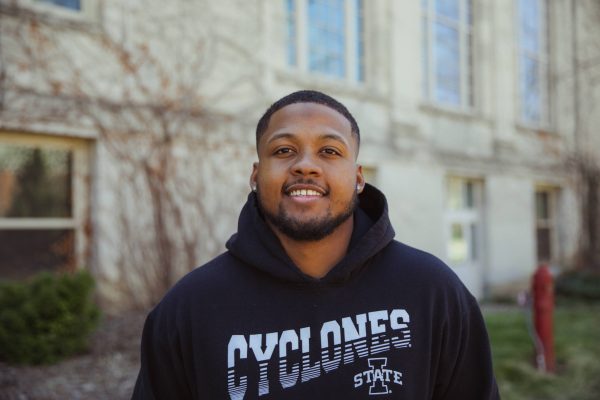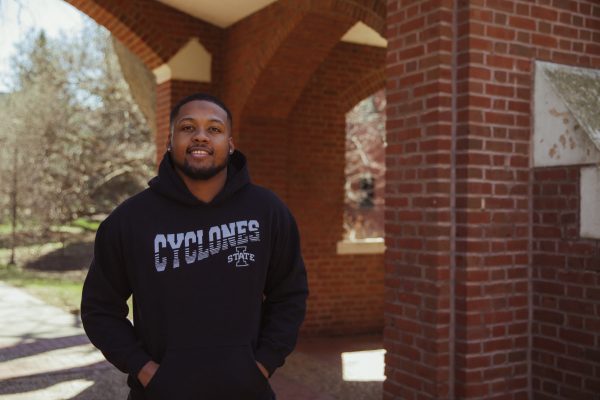
According to the American Psychological Association, only about 4% of U.S. psychologists identify as Black. Derrick Garth Jr. (’23 psychology) wants to fill the gap.
Garth plans to earn a Ph.D. in counseling psychology and make a difference as a community-based researcher and practitioner. His interest in research grew at Iowa State through opportunities such as the McNair Program and the LAS Dean’s High Impact Awards for Undergraduate Research.
“I’ve always wanted to understand the unique experiences of Black people in the U.S. regarding mental health,” Garth said. “I want to use my research to create interventions and prevention measures that can help to improve the mental health of Black people and to reduce the disparities in mental health care that exist in the U.S.”
Affirming his path
The McNair Program helps students from underrepresented backgrounds prepare for research-based Ph.D. programs. Being a McNair Scholar introduced Garth to research opportunities and supportive mentors.
At the start of his junior year, Garth began doing research with Nathaniel Wade, professor of psychology and director of ISU’s Network Community Counseling Lab, and Lawrion Anderson, a graduate student in psychology. Garth helped examine the roles of parental communication, childhood sexual abuse, and other adverse childhood experiences in later relationship quality among Black women.
The project helped confirm he was on the right professional path, and Garth also presented the research at the McNair Symposium. He said the project opened doors to further study and showed him how research could help identify factors that can prevent and reduce psychology distress in Black communities.
“I was inspired by how much this profession might help my community,” he said. “The ability to contribute to and research this area of psychology justified my pursuits.”

An independent study to examine Black well-being
As Garth continued in research, Wade encouraged him to apply for the LAS Dean’s High Impact Award for Undergraduate Research, which provides funding to support students in their research endeavors.
Garth decided to conduct an independent study and contribute to filling the gap in Black psychological research, while gaining additional skills for graduate study.
“With the body of work examining the connection and history Black Americans have with racial discrimination, religion/spirituality, and racial identity, there is still an unexamined gap in understanding how these together relate to Black psychological well-being,” he said.
Garth is looking at resilience factors in the Black community, such as religious commitment and racial identity, to see how they might serve as protective factors against the psychological distress of anti-Black racism and discrimination.
As he continues with research, he hopes to one day use his findings to help his community, inform policymakers, and advocate for more equitable and culturally competent mental health care for Black people.
“Before being in McNair, I initially envisioned myself becoming only a practicing psychologist as I didn’t see myself being interested much in research,” he said. “The program has assisted me in preparing for graduate school and fellowship applications, supported me through research opportunities, and provided a community like no other.”
Along with Wade and Anderson, Garth said additional mentors like graduate student Lisa Dazzell; Ashley Garrin and Erin Todey with the McNair Program; and Carolyn Cutrona, Distinguished Professor of psychology, have all been a powerful part of his success.
“They have provided me with the guidance, support, and resources I need to succeed,” he said. “I am grateful for their help and support, and I am confident that I will continue to benefit from their guidance and support as I continue my journey in academia.”